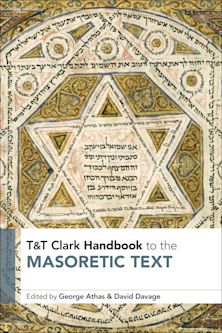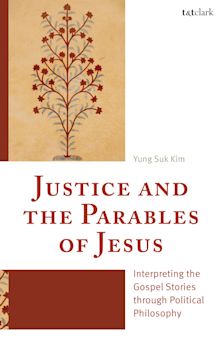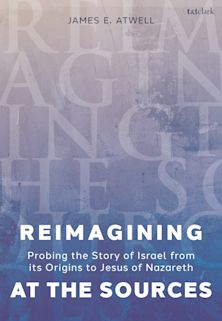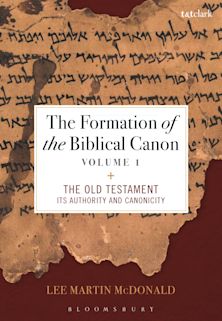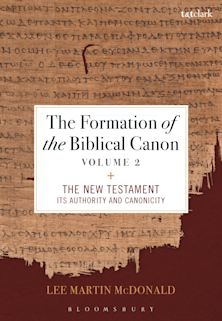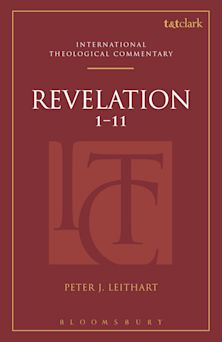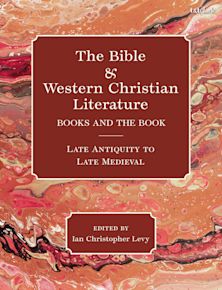- Home
- ACADEMIC
- Biblical Studies
- Biblical Interpretation
- Narrative Theology and the Hermeneutical Virtues
Narrative Theology and the Hermeneutical Virtues
Humility, Patience, Prudence
Narrative Theology and the Hermeneutical Virtues
Humility, Patience, Prudence
For information on how we process your data, read our Privacy Policy
Thank you. We will email you when this book is available to order
You must sign in to add this item to your wishlist. Please sign in or create an account
Description
In Narrative Theology and the Hermeneutical Virtues: Humility, Patience, Prudence, Jacob L. Goodson offers a philosophical analysis of the arguments and tendencies of Hans Frei’s and Stanley Hauerwas’ narrative theologies. Narrative theology names a way of doing theology and thinking theologically that is part of a greater movement called “the return to Scripture.” The return to Scripture movement makes a case for Scripture as the proper object of study within Christian theology, philosophy of religion, and religious ethics. While thinkers within this movement agree that Scripture is the proper object of study within philosophy and religious studies, there is major disagreement over what the word “narrative” describes in narrative theology.
The Yale theologian, Hans Frei, argues that because Scripture is the proper object of study within Christian theology and the philosophy of religion, Scripture must be the exclusive object of study. To think theologically means paying as close attention as possible to the details of the biblical narratives in their “literal sense.” Different from Frei’s contentions, the Christian ethicist at Duke University, Stanley Hauerwas claims: if Scripture is the proper object of study within Christian theology, then the category of narrative teaches us that we ought to give our scholarly attention to the interpretations and performances of Scripture. Hauerwas emphasizes the continuity between the biblical narratives and the traditions of the church. This disagreement is best described as a hermeneutical one: Frei thinks that the primary place where interpretation happens is in the text; Hauerwas thinks that the primary place where interpretation occurs is in the community of interpreters.
In order to move beyond the dichotomy found between Frei’s and Hauerwas’ work, but to remain within the return to Scripture movement, Goodson constructs three hermeneutical virtues: humility, patience, and prudence. These virtues help professors and scholars within Christian theology, philosophy of religion, and religious ethics maintain objectivity in their fields of study.
Table of Contents
Chapter 1: What Is Narrative Theology? Hans Frei, Stanley Hauerwas, and the Hermeneutical Task
Chapter 2: What Is Modern Philosophy’s Impact on Hermeneutics? The Role of Modern Philosophy in Hans Frei’s The Eclipse of Biblical Narrative
Part II: Empiricism, Science, and Theological Hermeneutics
Chapter 3: AgainstSpinoza: What Kind of Science Does Hermeneutics Require?
Chapter 4: AgainstLocke What Kind of Empiricism Should Theological Hermeneutics Adopt?
Chapter 5: Can Narrative Theology Meet the Demands of Novelty? The Case of Peter Ochs
Part III: A Virtue-Centered Science of Interpretation
Chapter 6: Who Do Scientists of Interpretation Serve?
Chapter 7: What Kind of Readers Should Scientists of Interpretation Be?Conclusion: The Scientific Bases of a Dogmatic or Philosophical Theology
Bibliography
Product details
| Published | Jan 21 2015 |
|---|---|
| Format | Ebook (Epub & Mobi) |
| Edition | 1st |
| Extent | 226 |
| ISBN | 9781498505154 |
| Imprint | Lexington Books |
| Publisher | Bloomsbury Publishing |
About the contributors
Reviews
-
This is an ambitious book, which situates narrative theology in the context of American pragmatism and argues the case for humility, patience, and prudence as the essential virtues of the engaged theologian. In the process Goodson gives trenchant readings of Spinoza and Locke, James and Peirce, John Howard Yoder and Benedict XVI. It is particularly valuable for the ways in which it brings together Hans Frei, Peter Ochs, Stanley Hauerwas, and Eugene Rogers as contemporary guides for those who would take seriously the “plain sense” of Scripture.
G. Scott Davis, University of Richmond
-
In this brilliant and original study, two apparent opposites meet and find that they are even better together than they were part. On the one side are narrative theologians, the ‘return to Scripture’ movement in American religious thought, like Hans Frei and Stanley Hauerwas. On the other side are philosophers, specialists in the tradition of American pragmatism, like William James. Thanks to Jacob Goodson, we may now say that these are two sides of a philosophically and scripturally grounded ethics and of a philosophically grounded scriptural hermeneutics. It is a significant achievement that should attract careful attention from theologians, biblical scholars, and philosophers. Among its innovations are a new reading of William James’ pragmatism as the basis for a scriptural hermeneutic; a convincing theo-philosophic dialogue among the writings of Thomas Aquinas, Hans Frei, and William James; a new reading of the theology of Stanley Hauerwas; and an ethics of humility, patience, and prudence for students of nature and Scripture alike.
Peter Ochs, Edgar M. Bronfman Professor of Modern Judaic Studies at the University of Virginia
-
Drawing on an extraordinary range of philosophical and theological scholarship, Goodson provides the best account yet of recent theological developments associated with the turn to narrative in theology. His analysis of my work taught me a great deal. That it did so is but an indication of Goodson’s embodiment of the virtues of humility and patience, which he rightly argues are necessary for the reading of texts, and in particular, the text of Scripture. This is a major work.
Stanley Hauerwas, Duke University Divinity School












